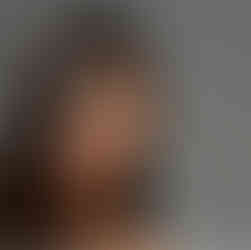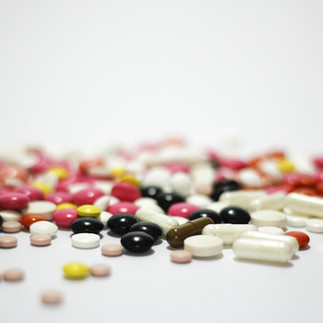What Are The Causes Of Hair Loss And How Can we Help At Dynamic Regenerative Medicine UK?
- Adam Whatley
- Apr 15, 2024
- 5 min read
The Secrets to Healthy Hair. Hair Loss Causes and Solutions with Dynamic Regenerative Medicine
Hair loss can be a distressing condition affecting people of all ages and genders. While many factors contribute to hair loss, including genetics, hormonal imbalances, and lifestyle choices, nutrition plays a pivotal role in maintaining healthy hair follicles and promoting hair growth. At Dynamic Regenerative Medicine, we understand the importance of addressing the root causes of hair loss while harnessing the power of nutrition to support hair health.
Understanding Hair Loss Causes
GENETICS
Family history plays a significant role in determining one's susceptibility to hair loss, particularly male and female pattern baldness.
HORMONAL IMBALANCES
Fluctuations in hormone levels, such as those experienced during pregnancy, menopause, or thyroid disorders, can contribute to hair thinning and loss.
STRESS
Chronic stress can disrupt the hair growth cycle, leading to increased shedding and thinning of the hair.
NUTRITIONAL DEFICIENCIES
Genetic deficiencies, or inadequate intake of essential nutrients, such as vitamins, minerals, and proteins, can weaken hair follicles and impede hair growth.
MEDICAL CONDITIONS
Certain medical conditions, including autoimmune diseases and scalp infections, can cause hair loss as a secondary symptom.
Nutrition Solutions for Healthy Hair
Protein-Rich Foods
Incorporating lean sources of protein, such as chicken, fish, eggs, and legumes, into your diet provides the building blocks for strong, healthy hair.
Omega-3 Fatty Acids
Foods rich in omega-3 fatty acids, such as salmon, walnuts, and flaxseeds, help nourish the scalp and support hair growth.
Vitamins and Minerals
Essential vitamins and minerals, including iron, vitamin D, A, vitamin E, biotin, and zinc, play crucial roles in maintaining hair health. Incorporating a variety of fruits, vegetables, nuts, and seeds into your diet ensures you're getting these vital nutrients.
Supplements
In some cases, supplementing with targeted vitamins and minerals can help address nutritional deficiencies associated with hair loss. At Dynamic Regenerative Medicine, our clinicians can provide personalised recommendations based on your unique needs.

The importance of vitamin D, vitamin B12 and Iron in hair loss
Vitamin D Deficiency
Vitamin D plays a crucial role in the hair growth cycle by stimulating hair follicle growth and proliferation. It also helps regulate the expression of genes involved in hair follicle cycling.
Effect on Hair Follicles
Insufficient levels of vitamin D can lead to the premature onset of the resting phase (telogen phase) of the hair growth cycle, causing more hairs to enter the shedding phase (exogen phase) and resulting in increased hair loss.
Impact on Hair Density
Studies have shown that individuals with low levels of vitamin D are more likely to experience hair thinning and reduced hair density
Vitamin B12 Deficiency
Essential for Hair Growth
Vitamin B12 is essential for the production of red blood cells, which transport oxygen and nutrients to the scalp and hair follicles. It also plays a role in the metabolism of amino acids, the building blocks of protein.
Effect on Hair Follicles
Inadequate levels of vitamin B12 can lead to poor oxygenation and nutrient delivery to the hair follicles, resulting in weakened hair shafts and increased hair shedding.
Symptoms of Deficiency
Hair loss, along with fatigue, weakness, and pale skin, is a common symptom of vitamin B12 deficiency. Additionally, changes in hair color and texture may occur.
Iron Deficiency
Impact on Hair Growth
Iron is essential for the production of hemoglobin, a protein in red blood cells that carries oxygen to tissues, including the scalp and hair follicles. Adequate iron levels are crucial for maintaining healthy hair growth.
Effect on Hair Follicles
Iron deficiency (anemia) can lead to reduced oxygen delivery to the scalp and hair follicles, causing hair to become thin, brittle, and prone to breakage. It can also disrupt the hair growth cycle, leading to increased hair shedding.
Pattern of Hair Loss
Iron deficiency-related hair loss often presents as diffuse thinning rather than specific bald patches. Hair may appear dull, dry, and lacking in vitality.
HORMONES AND HAIR LOSS

Dihydrotestosterone (DHT)
DHT is a derivative of testosterone, synthesized from testosterone by the enzyme 5-alpha-reductase. It is a potent androgen hormone.
Effect on Hair Follicles
DHT binds to androgen receptors on hair follicles, particularly those on the scalp, leading to the miniaturisation of hair follicles. Over time, this miniaturisation can result in thinner, shorter, and less pigmented hair growth.
Role in Male Pattern Baldness (Androgenetic Alopecia)
Male pattern baldness is primarily driven by the action of DHT on susceptible hair follicles, leading to the characteristic pattern of hair loss, starting with recession at the temples and thinning at the crown.
Testosterone
Testosterone, particularly in its converted form as DHT, can negatively impact hair growth when present in excess. However, testosterone also plays a role in promoting body hair growth in both men and women.
High levels of testosterone or its conversion to DHT can contribute to the miniaturisation of hair follicles and accelerate hair thinning and loss, especially in individuals genetically predisposed to androgenetic alopecia.
Estrogen
Protective Effect
Estrogen (or Oestrogen), often considered the "female hormone," can have a protective effect on hair growth. It helps maintain the anagen (growth) phase of the hair growth cycle and promotes thicker, healthier hair.
Postpartum Shedding
After childbirth, estrogen levels drop sharply, leading to a temporary shedding of hair known as telogen effluvium. This shedding typically resolves on its own as hormone levels stabilise.
Thyroid Hormones (T3 and T4)
Role in Metabolism
Thyroid hormones, including triiodothyronine (T3) and thyroxine (T4), regulate metabolism throughout the body, including the hair follicles.
Effect on Hair Growth
Both hypothyroidism (underactive thyroid) and hyperthyroidism (overactive thyroid) can disrupt the hair growth cycle. In hypothyroidism, hair may become thin, dry, and brittle, while in hyperthyroidism, hair loss may occur due to accelerated hair cycling.
Other Hormonal Imbalances
Menopause
Fluctuations in hormone levels during menopause, particularly declining estrogen levels, can contribute to hair thinning and loss in women.
Polycystic Ovary Syndrome (PCOS)
Hormonal imbalances, including elevated levels of androgens such as testosterone, can occur in women with PCOS, leading to symptoms such as hirsutism (excessive body hair) and male-pattern hair loss.
To summarise, hormonal imbalances can disrupt the hair growth cycle and contribute to hair loss through various mechanisms, including the action of DHT on susceptible hair follicles, alterations in testosterone and estrogen levels, and thyroid dysfunction. Addressing underlying hormonal imbalances through medication, lifestyle modifications, and hormone replacement therapy, when appropriate, can help manage hair loss and promote healthier hair growth.
DYNAMIC REGENERATIVE MEDICINE APPROACH TO HAIR LOSS
At Dynamic Regenerative Medicine, we take a holistic approach to hair loss treatment, addressing both internal and external factors that contribute to hair health. Our team of experienced clinicians offers personalised nutrition counseling, supplement recommendations, and regenerative therapies to support hair growth and restore confidence.
Understanding the causes of hair loss and adopting a nutrition-focused approach is key to promoting healthy hair growth and preventing further hair thinning. At Dynamic Regenerative Medicine, we're committed to helping you achieve optimal hair health through comprehensive treatment plans tailored to your individual needs. Contact us today to learn more about our services and start your journey toward vibrant, luscious locks.
Get in touch to find out further information or sceduale a FREE CONSULTATION
If you're ready to break free from hair loss we may have a solution for you. Schedule a FREE consultation today with Dynamic Regenerative Medicine to explore non-invasive and effective solutions. Say goodbye to hair loss, and start to improve your confidence again – all thanks to the wonders of hair loss treatments. Your journey to a happier, healthier you starts here!
Dynamic Regenerative Medicine
01564 330773







Comments